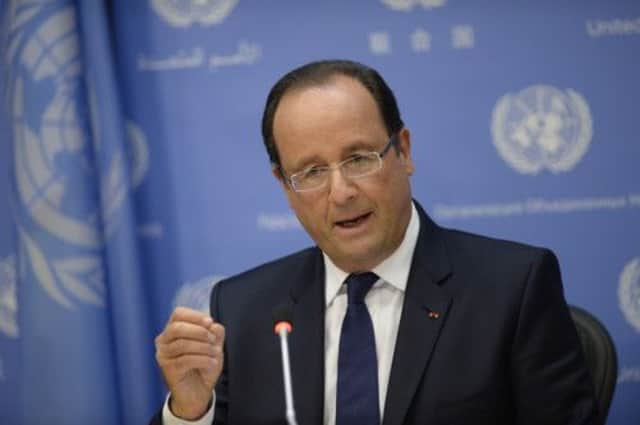France’s economic crisis over, says French government


On the eve of his budget, finance minister Pierre Moscovici said he planned to cut the deficit by €18 billion (£15bn), around three-quarters of which will come from spending cuts and the rest from tax rises.
“Purchasing power is our preoccupation,” Mr Moscovici told French television.
Advertisement
Hide AdAdvertisement
Hide AdHowever his plans have been criticised for hurting household spending. He aims to focus relief on lower income households, but economists have pointed out that his tax credit meant to boost hiring by firms is funded by a sales tax which takes cash from people’s pockets.
In terms of reducing the deficit, the budget appears to be Paris’ belated effort to fall in line with the rest of Europe’s focus on cutting public spending, which makes up 57 per cent of gross domestic product.
The slow approach is typical of François Hollande’s tenure. His most notable domestic policy so far, the creation of a 75 per cent tax for incomes over €1 million, was rejected by a court and amended and reduced to the point that it lost much of its shock value. It was written into the new budget as a 50 per cent tax paid by employers on all remuneration above €1m.
The delays in reforms have drawn a critical eye from the European Commission and Germany, which led the push for austerity across the eurozone. While the Commission has softened its stance somewhat – notably giving France more time to reduce its deficit – the re-election of German chancellor Angela Merkel on Sunday was an endorsement of her tough line.
But the new budget is also coming under fire for cutting too much, since lower spending will hurt growth in the short term, just as France is emerging from recession and with unemployment at 11 per cent.
Eric Heyer, an economist with the French Observatory for Economic Forecasts, estimates that spending cuts and tax increases – in France and around Europe – will shave 1.3 per cent off French growth next year, expected to be somewhere below 1 per cent. The government built its budget on a 0.9 per cent estimate.
Mr Heyer cautions that a return to growth doesn’t mean France is rebounding.
“We can’t talk about a recovery as long as growth is around 1 per cent,” he said. “Since today, we produce less than five years ago, we are still in recession.”